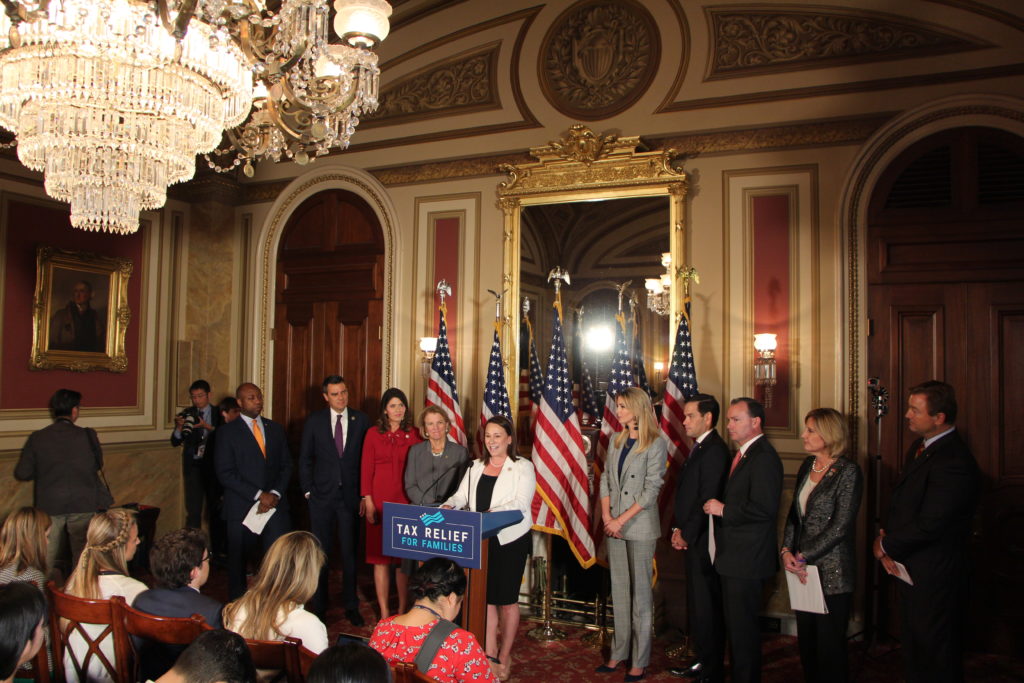New Census data reveals how good policy choices can cut poverty, keep Alabamians healthier

People-friendly federal policies reduced poverty and made it easier for people to get health care in 2021, U.S. Census figures released this week show. Perhaps the most eye-opening improvement was a dramatic reduction in child poverty nationwide. The recent Child Tax Credit (CTC) expansion alone kept 5.3 million Americans above the poverty line. The one-year expansion under the American Rescue Plan Act (ARPA) made the full CTC available to children living in families with low or no earnings. It increased the maximum credit to $3,000 per child and $3,600 per child under age 6. And it extended the credit to 17-year-olds. The expansion expired in 2022 after Congress failed to renew it, but lawmakers could revisit that decision later this year.Child Tax Credit improvements fuel record drop in U.S. child poverty CTC expansion helped reduce disparities for Black and Hispanic children. It also drove the U.S. child poverty rate to a record low of 5.2% under the Supplemental Poverty Measure (SPM). Unlike the traditional poverty measure, the SPM reflects the poverty-reducing effects of tax credits and non-cash benefits like food assistance. Alabama’s official child poverty rate was 22% last year under the American Community Survey (ACS), a more traditional measure that accounts for fewer factors than the SPM. That was an apparent increase from the pre-pandemic level of 21.1% in 2019, though within the margin of error. (ACS data for 2020 is unavailable due to pandemic-related data collection disruptions.) SPM data paints a fuller picture of the poverty-reducing power of supports like the expanded CTC. Alabama’s three-year average overall poverty rate under the SPM was 10.3% in 2019-21. By contrast, the state’s overall ACS poverty rate moved from 15.5% in 2019 to 16.1% in 2021. That change was not statistically significant. “The success of the Child Tax Credit expansion was undeniable,” Alabama Arise executive director Robyn Hyden said. “This policy slashed child poverty and helped families make ends meet across our state and our country. Congress needs to renew the Child Tax Credit expansion and make it permanent. And our state lawmakers should do their part to help Alabama families keep food on the table by ending the state grocery tax and replacing the revenue in a responsible way.” Uninsured rates fall nationally despite tumult of COVID-19 pandemic Federal policy choices also fueled a slight reduction in the number of uninsured Americans last year. The U.S. uninsured rate dropped to 8.6% last year, down from 9.2% in 2019. Alabama’s uninsured rate stayed relatively flat, moving from 9.7% in 2019 to 9.9% in 2021. That change was within the margin of error. Alabama continued a years-long pattern of outperforming the national average in insuring children in 2021. The state’s rate of uninsured children (4%) remained the best in the Deep South last year. Much of that sustained success is attributable to ALL Kids, the state’s Children’s Health Insurance Program (CHIP) created in 1998. ALL Kids has played a crucial role in reducing Alabama’s rate of uninsured children from 20% in the late 1990s. A key factor in the overall health coverage improvements was the federal requirement for state Medicaid programs to keep participants covered throughout the ongoing COVID-19 public health emergency declaration. That declaration may end later this year, underscoring the importance of helping many enrollees transition to new coverage. Enhanced subsidies under ARPA also helped make health coverage more affordable for millions of Americans with private plans. This includes many of the 219,000 Alabamians with marketplace plans through the Affordable Care Act. Congress renewed subsidy enhancements through 2025 in the Inflation Reduction Act, which President Joe Biden signed into law last month. “Medicaid, ALL Kids, and ACA marketplace coverage have saved and improved the lives of millions of Alabamians,” Hyden said. “Alabama should build on these successes by expanding Medicaid to help more than 340,000 people who are uninsured or struggling to afford health insurance. “It’s time for Gov. Kay Ivey to say yes to the generous federal incentives for Medicaid expansion. It’s time for her to say yes to a healthier future for Alabama.” Alabama Arise is a statewide, member-led nonprofit organization advancing public policies to improve the lives of Alabamians who are marginalized by poverty. Arise’s membership includes faith-based, community, nonprofit and civic groups, grassroots leaders and individuals from across Alabama. Republished with the permission of Alabama Arise.
Child tax credit starts hitting U.S. families’ bank accounts

The child tax credit had always been an empty gesture to millions of parents like Tamika Daniel. That changed Thursday when the first payment of $1,000 hit Daniel’s bank account — and dollars started flowing into the pockets of more than 35 million families around the country. Daniel, a 35-year-old mother of four, didn’t even know the tax credit existed until President Joe Biden expanded it for one year as part of the $1.9 trillion coronavirus relief package that passed in March. Previously, only people who earned enough money to owe income taxes could qualify for the credit. Daniel went nearly a decade without a job because her eldest son is autistic and needed her. So she got by on Social Security payments. And she had to live at Fairfield Court, a public housing project that dead-ends at Interstate 64 as the highway cuts through the Virginia capital of Richmond. But the extra $1,000 a month for the next year could be a life-changer for Daniel, who now works as a community organizer for a Richmond nonprofit. It will help provide a security deposit on a new apartment. “It’s actually coming right on time,” she said. “We have a lot going on. This definitely helps to take a load off.” Biden has held out the new monthly payments, which will average $423 per family, as the key to halving child poverty rates. But he is also setting up a broader philosophical battle about the role of government and the responsibilities of parents. Democrats see this as a landmark program along the same lines as Social Security, saying it will lead to better outcomes in adulthood that will help economic growth. But many Republicans warn that the payments will discourage parents from working and ultimately feed into long-term poverty. Some 15 million households will now receive full credit. The monthly payments amount to $300 for each child who is 5 and younger and $250 for those between 5 and 17. The payments are set to lapse after a year, but Biden is pushing to extend them through at least 2025. The president ultimately would like to make the payments permanent — and that makes this first round of payments a test as to whether the government can improve the lives of families. Biden invited beneficiaries to the White House to mark the first round of payments, saying in a Thursday speech that the day carried a historic resonance because of the boost it will give families across the nation. “This would be the largest ever one-year decrease in child poverty in the history of the United States of America,” the president said. “Millions of children and their families, starting today, their lives are about to change for the better. And our country would be better off for it as well.” Florida Republican Sen. Marco Rubio, who successfully championed increasing the credit in 2017, said that the Democrats’ plans will turn the benefits into an “anti-work welfare check” because almost every family can now qualify for the payment regardless of whether the parents have a job. “Not only does Biden’s plan abandon incentives for marriage and requirements for work, but it will also destroy the child-support enforcement system as we know it by sending cash payments to single parents without ensuring child-support orders are established,” Rubio said in a statement Wednesday. The administration disputed those claims. Treasury Department estimates indicate that 97% of recipients of the tax credit have wages or self-employment income, while the other 3% are grandparents or have health issues. The credit also starts to phase out at $150,000 for joint filers, so there is no disincentive for the poor to work because a job would just give them more income. Colorado Democratic Sen. Michael Bennet said the problem is one of inequality. He said that economic growth has benefited the top 10% of earners in recent decades, while families are struggling with the rising costs of housing, child care, and health care. He said his voters back in Colorado are concerned that their children will be poorer than previous generations, and that requires the expansion of the child tax credit. “It’s the most progressive change to America’s tax code ever,” Bennet told reporters. Parenthood is an expensive undertaking. The Agriculture Department estimated in 2017, the last year it published such a report, that a typical family spends $233,610 to raise a child from birth to the age of 17. But wealthier children get far more invested in their education and upbringing, while poorer children face a constant disadvantage. Families in the top third of incomes spend about $10,000 more annually per child than families in the lower third. The child tax credit was created in 1997 to be a source of relief, yet it also became a driver of economic and racial inequality as only parents who owed the federal government taxes could qualify for its full payment. Academic research in 2020 found that about three-quarters of white and Asian children were eligible for the full credit, but only about half of Black and Hispanic children qualified. In the census tract where Daniel lives in Richmond, the median household income is $14,725 —almost five times lower than the national median. Three out of every 4 children live in poverty. For a typical parent with two children in that part of Richmond, the expanded tax credit would raise income by almost 41%. The tax credit is as much about keeping people in the middle class as it is about lifting up the poor. Katie Strelka of Brookfield, Wisconsin, was laid off from her job as a beauty and hair care products buyer for the Kohl’s department store chain in September as the pandemic tightened its grip on the country. She and her sons, 3-year-old Oliver and 7-year-old Robert, were left to depend on her husband’s income as a consultant for retirement services. The family was already struggling to pay for her husband’s kidney transplant five years earlier and his ongoing therapies before she
Bradley Byrne: A tax cut for Christmas

This Christmas, the American people received a gift that isn’t found underneath the tree but will be found in your pocketbook and paychecks over the coming years. I’m talking about passage of the Tax Cuts and Jobs Act. The Tax Cuts and Jobs Act represents the first major overhaul of our nation’s tax code since 1986. The ultimate goal is to grow the American economy and put more money in your pockets. I firmly believe the money is better off in the hands of the American people instead of in the coffers of a bloated federal government. Consider this: the average family in Southwest Alabama will see their tax bill decrease by $2,187 a year. That’s extra money on a car payment. That’s additional savings for a child’s college. That’s money to help pay for home repairs. That’s real money. As part of our bill, we nearly double the standard deduction from $6,500 and $13,000 under current law to $12,000 and $24,000 for individuals and married couples, respectively. Over 70% of tax filers in Southwest Alabama already take the standard deduction, so this will be a major boost for those people. Thousands more will pay less and won’t have to go through the burden of itemization. For families, the bill expands the Child Tax Credit from $1,000 to $2,000 per child. With this change, families will have more money to help with the many expenses related to raising a child. We also preserve the adoption tax credit to encourage and support those who open their homes to an adopted child. In an important step to restore individual choice and freedom, the bill ends the tax penalty created under Obamacare for individuals who choose not to have health insurance. The federal government should not force someone to buy a private product or fine someone who finds their health care options too expensive. The bill also includes serious and substantial reforms to make the American economy boom again. For example, our current corporate tax rate of 35% is the highest in the industrialized world. This keeps businesses from expanding in America and has caused a number of major companies to leave our country altogether. Well, the Tax Cuts and Jobs Act lowers the corporate tax rate to 21% to help make us more competitive on the world stage. We are already seeing the benefits of this change with companies like AT&T, Comcast, Wells Fargo, and Boeing announcing that they will increase investment in our country, increase pay for their employees, and give out bonuses. Small businesses also win big under this tax plan with lower taxes and a fairer tax structure that does not punish “pass-through” businesses. The bill offers a first-ever 20% tax deduction that applies to the first $315,000 of joint small business income. In addition to the major tax reforms, the bill also includes a provision important to the Gulf Coast that I championed. The provision would increase the money Gulf states are able to receive through the Gulf of Mexico Energy Security Act, which means more money will be headed to our local coastal communities. There are many other positive provisions included in the tax plan, so I encourage everyone to visit FairAndSimple.gop to learn more. At the end of the day, people right here in Southwest Alabama will be better off under the Tax Cuts and Jobs Act thanks to bigger paychecks, a stronger economy, and more money in their pockets. That’s a Christmas gift we can all get excited about! • • • Bradley Byrne is a member of U.S. Congress representing Alabama’s 1st Congressional District.
Martha Roby: Momentum on tax reform

Congressional efforts to reform our nation’s broken tax code are picking up momentum. After a week of debate and deliberation, the House Ways and Means Committee approved H.R. 1, The Tax Cuts and Jobs Act. It will now go to the full House for consideration. When it comes to tax reform, my top priority is for the plan to benefit the people I represent in Central and Southeast Alabama. A study from the nonpartisan Tax Foundation found that House Republicans’ tax reform plan will offer the median household in Alabama an average of $2,078 in tax relief. Also, our bill expands the Child Tax Credit to $1,600 per child and lowers the income threshold so that more low-income families can take advantage of it. A few thousand extra dollars in the family budget can go a long way, and I believe individuals know how to spend their money better than the federal government does. And remember, these aren’t just one-time savings. This is annual tax relief that hardworking taxpayers can count on and budget for year after year. Another important priority is to boost the economy and create jobs. That’s why the Tax Cuts and Jobs Act lowers business tax rates from 35 percent to a globally-competitive 20 percent while also closing the labyrinth of loopholes that have been written into the tax code for three decades. This will help businesses to grow and hire more workers here in the United States. That same Tax Foundation study estimates that our plan could help create as many as 13,323 new full time jobs in Alabama. Tax reform is a complicated issue on its own, so it doesn’t help that some individuals and organizations are spreading misinformation and confusing the public. For example, Senate Democrats’ false claim that the bill somehow raises taxes on the middle class received “Four Pinocchios” from The Washington Post Fact Checker. Also, a Washington think tank was forced to retract its harsh analysis of the bill and admit they miscalculated how the expanded Child Tax Credit would help working families. Some have characterized our tax reform plan as a tax cut for the wealthiest Americans. That’s not true. The bill delivers relief at every level while maintaining the top 39.6 percent tax rate on high-income earners. Our plan actually lowers tax rates for low and middle-income earners and increases the standard deduction, which means that a lot of people will be able to immediately keep more of what they earn. Some feared that our tax reform plan will raise taxes on retirement. That’s not true either. Our bill retains the popular retirement savings options, such as 401(k)s and Individual Retirement Accounts (IRAs) just as Americans know them today. There is one important recent change to the bill I’m pleased to report: The adoption tax credit was successfully added back into the tax reform package. The tax code provides adoptive families a credit of up to $13,570 in qualified expenses for each child adopted, including through public foster care, domestic private adoption, and international adoption. For parents following the call to adopt children, this tax credit can make a big difference in removing financial barriers that often come with adoption. Restoring this tax credit was the right thing to do, and I appreciate Ways and Means Committee Chairman Kevin Brady for listening to the voices of adoptive families across the country. Simply put, I want you and your family to keep more of what you earn in your pocket. I believe hardworking Americans should have relief from our burdensome and frustrating tax code, and that’s what our plan delivers. The Tax Cuts and Jobs Act is just one step of the process. The Senate has released its own version of a tax reform plan, and we still have work to do. As we move forward, I encourage you to read the plan for yourself and stay informed on developments. You can find the text of the bill, frequently asked questions, and tools to help calculate how the plan would benefit you at FairandSimple.Gop. ••• Martha Roby represents Alabama’s Second Congressional District. She lives in Montgomery, Alabama with her husband Riley and their two children.
Martha Roby joins Ivanka Trump, House and Senate leaders to push child tax credit expansion

Alabama 2nd District U.S. Rep. Martha Roby appeared alongside First Daughter Ivanka Trump as well Republican lawmakers on Capitol Hill Wednesday to promote the expansion of the child tax credit to help working families as part of a GOP tax-reform proposal. “Expanding the child tax credit is the right thing to do,” Roby said at a news conference promoting the proposal. “For the people I represent, this can make a big difference. For that mom working a retail job or the dad driving the truck or the parent working two or three jobs so the other one can stay home – having a couple thousand dollars in your pocket is a big deal.” She continued, “I promise you parents know how to spend that money better than the government does.” Ivanka Trump, who has championed policies to help working families in the Trump Administration, said the child tax credit expansion is key to the President’s commitment to ensuring tax reform benefits middle class Americans. “Today, the vast majority of American homes are dual income,” Ivanka said. “Our tax code has to recognize and support this reality and support our dual values of work and a family. Over the years, as wages have stagnated the costs of raising a family have grown exponentially,” she added. “It is a priority of this administration and it is a legislative priority to ensure that American families can thrive and that we deliver real and meaningful tax relief to middle-income Americans.” Under the tax reform framework from House and Senate Republicans and the White House, the child tax credit, which currently provides working families with $1,000 per child, would be significantly increased and made available to more middle and lower income Americans. Details of the tax reform proposal are still being crafted. Specifics about the current blueprint are available on the House Ways and Means website here. Watch the full news conference including comments from Rep. Roby and Ivanka Trump below:


